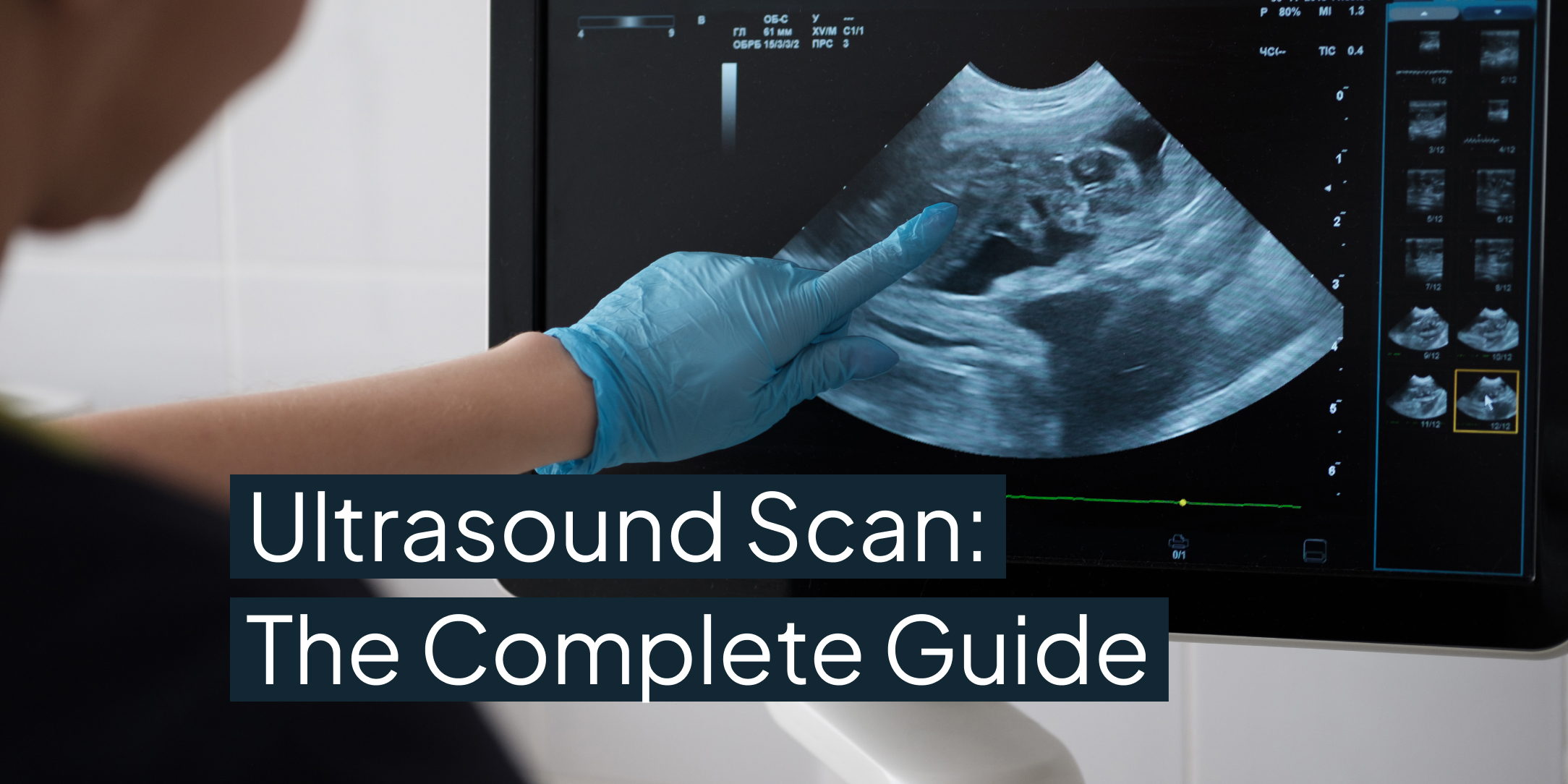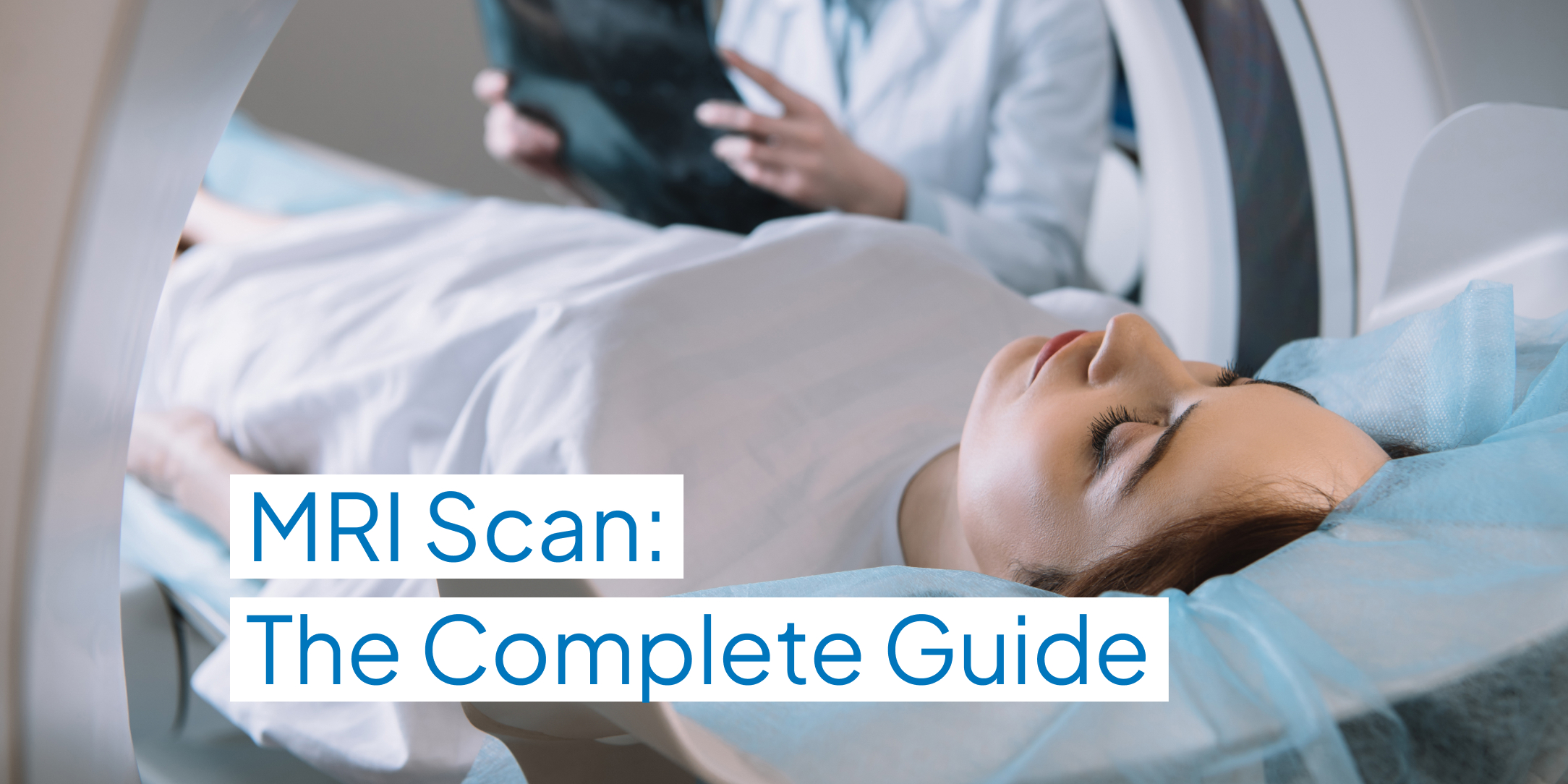Full-Body MRI: The Complete Guide (Updated 2025)


GetScannedToday
Intro
Full-body MRI scans are growing in popularity as people seek comprehensive health checks that can detect early signs of disease before symptoms appear. Unlike targeted MRI scans, a full-body scan covers all major organs, blood vessels, bones, and soft tissues in one session.
On the NHS, MRI scans are usually limited to specific body parts based on clinical need. Access is also under pressure: as of January 2025, around 6% of patients waited more than six weeks for an MRI, though in some hospitals, waits extended to 6–18 weeks depending on scanner availability. Private full-body MRI scans, however, can often be booked within days.
This guide explores what a full-body MRI is, what it can detect, who may benefit, how it works, and how you can arrange one privately with GetScanned.
What is a full-body MRI scan?
A full-body MRI is a non-invasive scan that uses strong magnetic fields and radio waves to create detailed images of the entire body in one session. Unlike CT or X-ray scans, MRI does not use ionising radiation.
The scan typically covers the brain, spine, chest, abdomen, pelvis, and musculoskeletal system. It is used both in preventive health and for patients with complex medical histories who need a complete assessment.
What does it show?
A full-body MRI can detect a wide range of abnormalities. It does not replace all other tests, but it provides an overview across multiple body systems.
By region, a full-body MRI can show:
- Brain & Spine
- Tumours or abnormal growths
- Stroke damage
- Multiple sclerosis lesions
- Herniated discs
- Cardiovascular system
- Enlargement of the heart
- Aneurysms
- Narrowed blood vessels
- Chest
- Lung nodules
- Mediastinal tumours
- Breast tissue abnormalities (in women)
- Abdomen & Pelvis
- Liver disease
- Kidney tumours
- Pancreatic abnormalities
- Prostate enlargement or cancer
- Uterine fibroids or ovarian cysts
- Bones & Joints
- Arthritis
- Stress fractures
- Soft-tissue tears
- Oncology
- Early detection of tumours across multiple organs
- Screening for metastasis in cancer patients
Who might need one?
A full-body MRI may be considered if you:
- Want a preventive health check to detect disease early.
- Have a family history of cancer, cardiovascular disease, or neurological conditions.
- Are over 40 years old and wish to screen for age-related conditions.
- Are you an athlete seeking a baseline health scan?
- Have complex or unexplained symptoms affecting more than one body system.
On the NHS, full-body MRIs are rarely offered. They are generally reserved for patients with specific conditions or those enrolled in research studies. Privately, they are available on a self-referral basis, allowing proactive health screening.
How does the scan work?
Step-by-step patient journey:
- Step 1: Book online
- Complete a quick booking form, choose your preferred clinic and appointment date, and pay securely online. No GP referral needed.
- Step 2: The Doctor calls
- Within 24 hours, one of our doctors will call to confirm your medical details and prepare your MRI referral. This ensures your scan is safe, appropriate, and tailored to you.
- Step 3: Your scan appointment
- Attend your chosen clinic for a full-body MRI scan. The scan takes around 60–90 minutes. You’ll lie comfortably while the scanner captures detailed images of your brain, spine, organs, and joints. The process is non-invasive and pain-free.
- Step 4: Results and clinical review
- A consultant radiologist reviews your images and prepares a detailed report. You’ll receive:
- Access to our portal with a written breakdown of your scan findings and images
- A follow-up call with our clinical team to explain the results in plain English
- Guidance on any next steps, including referral to a specialist if needed.
- Findings requiring follow-up: Specific abnormalities that may need targeted imaging.
- Incidental findings: Issues discovered that were unrelated to your main reason for scanning.
- A consultant radiologist reviews your images and prepares a detailed report. You’ll receive:
- Preparation & Safety
- Wear comfortable clothing without metal.
- MRI is safe for most patients, but it may not be suitable if you:
- Have a pacemaker, cochlear implant, or certain metal implants.
- I am pregnant in the first trimester.
- Have severe claustrophobia.
- Have large tattoos with metallic ink.
NHS Wait Times vs Private Options
The NHS uses MRI scans strictly for diagnostic purposes, not for proactive health screening. Access is tightly controlled because demand far outweighs scanner capacity.
- In January 2025, around 6% of patients still waited longer than six weeks for an MRI, despite big improvements from the previous year, when 1 in 4 waited that long
- The median wait time across all diagnostic tests, including MRI, was 2.6 weeks in November 2024 - but this figure masks big regional variations.
- In some hospitals, patients are still waiting 6 to 18 weeks for an MRI.
- The UK has only 8.6 MRI scanners per million people, well below the EU average of 12.4, which puts ongoing pressure on capacity.
For these reasons, the NHS focuses its limited MRI capacity on patients with urgent clinical needs. That means you cannot book a proactive, preventive full-body MRI through the NHS - it simply isn’t offered. The only way to access this kind of early-detection health screen is through private providers like GetScanned.
Private full-body MRI with GetScanned:
- Book online without a GP referral.
- Access CQC-registered clinics nationwide.
- Appointments are typically within days.
- Results are delivered within a few working days.
Cost & Booking with GetScanned
From £1,499 for a full-body MRI.
- No GP referral required.
- Self-referral available online.
- Lifetime access to results and reporting portal.
- CQC-registered clinics nationwide.
- Secure checkout and rapid scheduling.
Book your full-body MRI with GetScanned
Comparison Table: Full-Body MRI vs Targeted MRI
Checklist: What to Bring
- Comfortable clothing without zips or fasteners
- List of current medications
Take a look at our news and articles
Frequently asked questions
Do I need a GP-referral?
No prior GP-referral is required. Booking with us includes a GP phone consultation and referral. Shortly after booking you will be contacted by a GP from our team who will discuss your scan and provide a referral.
How long is an MRI scan?
MRI scans generally take a bit longer than other types of scans. Individual scans take 10-30 minutes depending on the body part being scanned, overall it can take anywhere from 15 minutes to 90 minutes. You do have to lay very still for an MRI and if there is movement the scan may need to be repeated which can add some additional time.
What’s included in my booking?
With your GetScanned booking, you will receive:
- A pre-scan phone consultation with a member of our medical team.
- A referral for the scan.
- Scheduling of a private MRI scan at your preferred scanning centre.
- Access to your written report by a radiologist.
- Access to your scan images (online and downloadable).
How much is a private MRI scan?
A private MRI scan cost varies depending on the part of the body being scanned and the location the scan is performed. Generally, a private MRI scan in the UK starts at around £350, and includes the scheduling, scan itself and results.
What’s the difference between an open and closed MRI?
Closed MRI machines are the traditional and first type of MRI. They are used more frequently because they provide higher quality images, however they aren’t ideal for certain types of scan or when the patient has limited mobility. Open or wide-bore MRI machines don’t involve lying in a tight cylinder, instead they have wider openings with more space and are therefore considered better if you suffer from claustrophobia. A standing MRI or upright MRI is a new type of open MRI that allows the patient to be in various different positions, including weight bearing positions. If you would prefer an open MRI please filter by MRI type to find an open MRI near you, but please be aware it is only available at certain locations.

Still have questions?
Can't see an answer to your question? Our friendly customer care team are happy to help.





